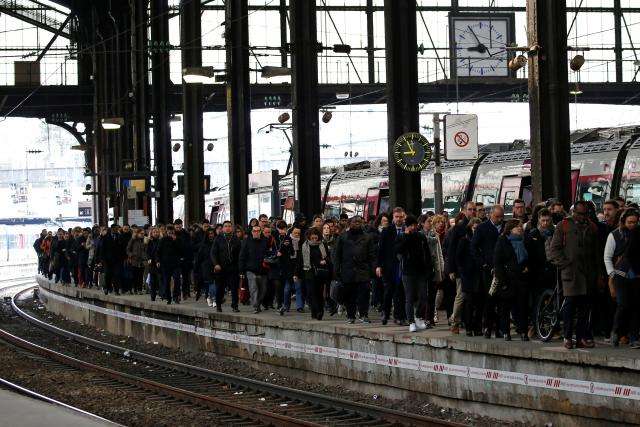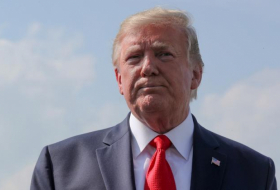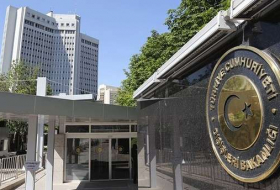While unions have struggled to rally crowds over the past months, this is the first protest against Macron bringing together public sector workers and railway staff, potentially spelling trouble for the government ahead of a rolling rail strike.
“It’s a real mess this morning,” Didier Samba, who missed his morning commuter train to the suburbs and had more than one hour’s wait for the next, said at Paris’ Gare du Nord station.
The strike was expected to lead to the cancellation of 60 percent of fast trains, 75 percent of inter-city trains and about 30 percent of Paris airports’ flights throughout the day.
Unions said one in four primary schools were on strike, while electricity generation dropped by over three gigawatts (GW), the equivalent of three nuclear reactors, as gas and electricity sector workers joined the strike.
Some 150 protest marches are scheduled, including two rallies starting at around 1300 GMT in Paris.
Opinion polls show a paradox: a majority of voters back the strike but an even bigger majority back the reforms, including cutting the number of public sector workers and introducing merit-based pay.
That has led the government, which overhauled labor laws last year and is also crafting a series of other sensitive reforms including of unemployment insurance, to say it will stand by its plans, while keeping a close eye on protests.
On Tuesday, following a retirees’ march, Prime Minister Edouard Philippe said the government would change tack for the poorest 100,000 out of 7 million pensioners concerned by a tax hike, in a sign that a government that prides itself on being firm on reforms can make exceptions.
“What we need to avoid is that all the grievances fuse together, as was the case in 1995,” a government official said, referring to France’s biggest strike in decades, which forced the government of the time to withdraw reforms after striking public and private sector workers received huge popular support.
“The situation is very different from 1995. At the time there was a big discrepancy with what the government had promised during the elections and what they eventually did.”
Public sector workers are angry with plans to cut public sector headcount by 120,000 by 2022, including with voluntary redundancies, and introduce other reforms including merit-based pay.
Railway workers are worried by government plans to scrap job-for-life guarantees, automatic annual pay rises and generous early retirement.
“Discontent and worry are spreading very quickly,” said Jean-Marc Canon of UGFF-CGT, one of the largest public sector’s unions.
While rail workers have planned a three-month rolling strike starting April 3, public sector workers have no plan yet for further labor action but they will meet next week to decide on any possible move.
Thursday’s strike, and the government’s reaction, will be a test, said Laurent Berger, the head of France’s largest union, CFDT.
“Either they (the government) listen to us and it will have been just a warning shot, or they don’t listen to us and then, let me tell you that public sector workers are very mobilized,” he told RTL radio.
More about: #Macron
















































